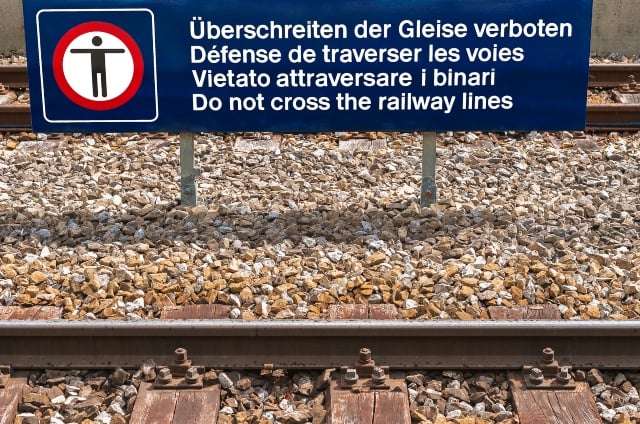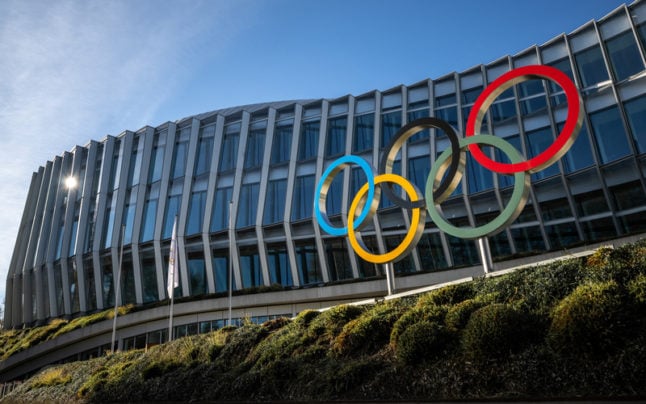Switzerland has four main languages.
Switzerland has four so-called national languages: German, French, Italian and Romansh, which is spoken by an estimated 60,000 people, mainly in the south-eastern canton of Graubünden. More on that below.
All official Swiss documents must appear in German, French and Italian while the Swiss government also uses Romansh when it is communicating with Romansh speakers.
German is the country’s main language.
German is the chief language for around 63 percent of the Swiss population, down from 66 percent in 1970. It is the main language spoken in large cities including Zurich, Bern and Basel.
.jpg)
A copy of the classic tale The Little Prince in the Swiss German dialect of Bern. Photo: AFP
But it is important to realise that while Swiss people use standard (or ‘high’) German in written communications, they actually speak one of large number of dialects collectively known as Swiss German.
READ ALSO: Swiss German tips and quirks – your introduction to ‘Dialekt’
These dialects can vary markedly from region to region although they are generally mutually intelligible so that someone from the canton of Valais in the southwest can still understand someone from St Gallen in the northeast despite some different vocabulary and different pronunciation.
There is no official written form of Swiss German, although you will sometimes see dialects written down, as with the version of the classic tale The Little Prince in the photo above.
French is on the rise.
French is the second most widely spoken language in Switzerland with just under one in four people (22.7 percent) using this language. It is the main language spoken in the cantons of Geneva, Vaud, Neuchâtel, and Jura and is also on the rise. In 1970, only 18 percent of the Swiss population had French as their number one language.
READ ALSO: Eight reasons Swiss-French is better than French-French
There is little difference in the French of Switzerland and that of France, although there are some vocabulary differences and Swiss French sounds slower because of its longer vowels.
There are around 350,000 Italian speakers.
A further 8.1 percent of the Swiss population speaks Italian (down from 11 percent back in 1970). That’s around 350,000 people, chiefly in the Italian-speaking canton of Ticino and in Graubünden. Swiss Italian is influenced by German and French and there are differences that might throw people who have studied standard Italian. More on that here.
Switzerland also has a fourth language – Romansh.
Romansh is a Romance language of the Rhaetian people, who are thought to have arrived in the Alps around 500BC. Some 60,000 people are thought to speak the language.
READ ALSO: 18 interesting facts about Switzerland’s fourth language, Romansh
In 1982, the ‘standard’ language of Romansh Grishun was unveiled. Invented by a Zurich linguist, Romansh Grishun is the Romansh you will see on Swiss bank notes or in official texts, but it is actually a composite language based on five regional written Romansh dialects. The composite language remains controversial with critics saying it is artificial.
.jpg)
A petrol station sign in Romansh. Photo: AFP
Very few people are bilingual in Swiss national languages.
A 2014 study revealed that just 2 percent of the Swiss population are fully bilingual French and German speakers – although this figure climbs to 7.5 percent if you include people who use both languages on the street and at work.
For Italian and German bilingual speakers, the figure is 1.8 percent.
And the number of people who trilingual speakers of German, French and Italian in Switzerland? This is just 0.2 percent, according to the 2014 study. But the study also found 1.8 percent of people use all three languages in their job or daily life.
There are four bilingual or multilingual cantons.
A number of Swiss cantons have two official languages. These are Bern (German and French), Fribourg (German and French), Valais (French and German) and Graubünden (German, Romansh and Italian).
There are also two bilingual German/French cities: Biel/Bienne and Fribourg (German and French).
Foreign languages have a large presence in Switzerland.
Just under one in four people in Switzerland do not have a Swiss national language as their native language. The most commonly foreign native language is English (5.4 percent of people in 2019), followed by Portuguese (3.7 percent) and Albanian (3.2 percent). English is therefore the fourth most common language in Switzerland.
READ ALSO: Nine German words that strike fear into foreigners in Switzerland



 Please whitelist us to continue reading.
Please whitelist us to continue reading.
Member comments